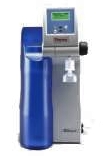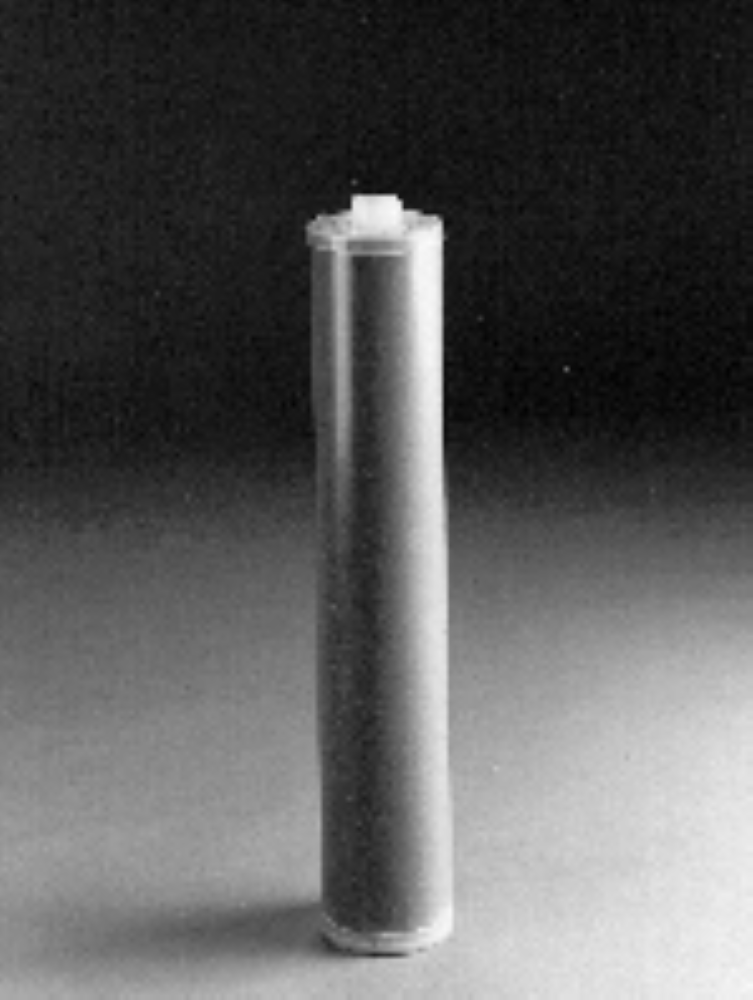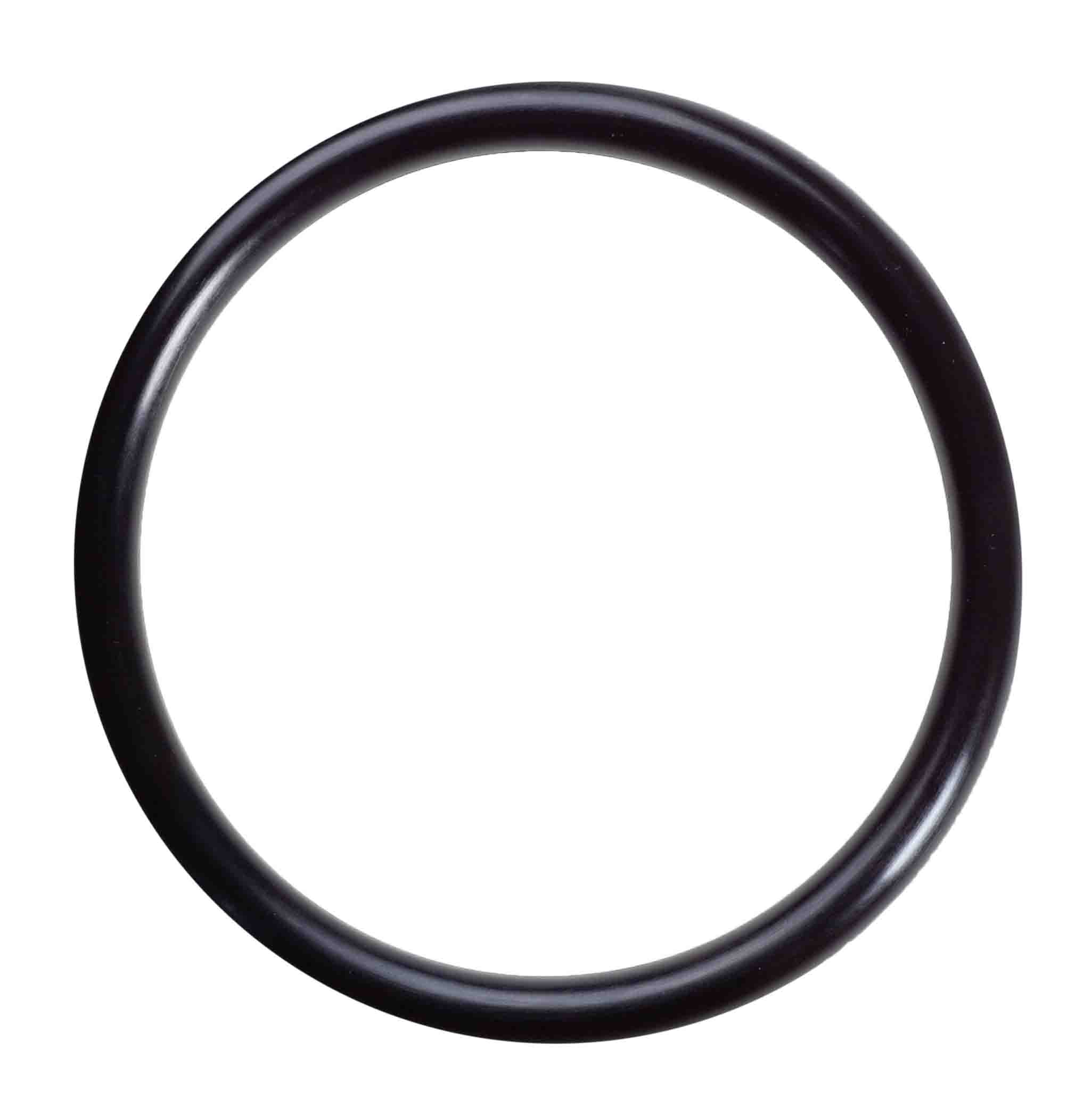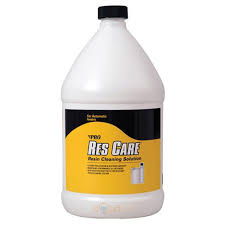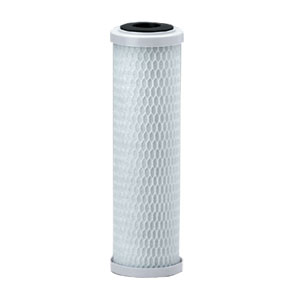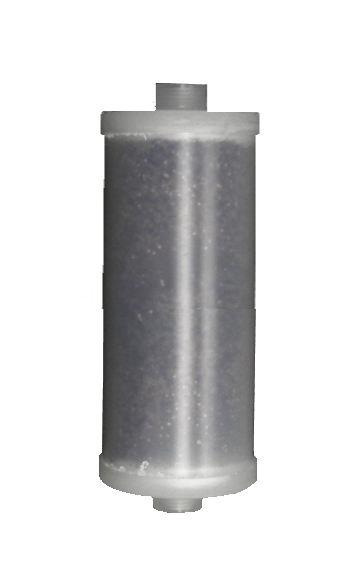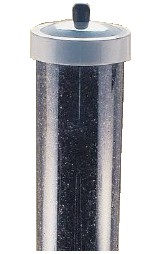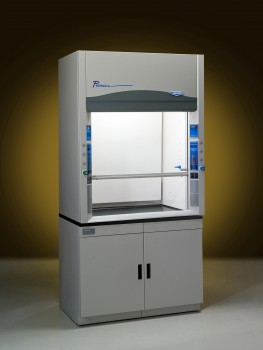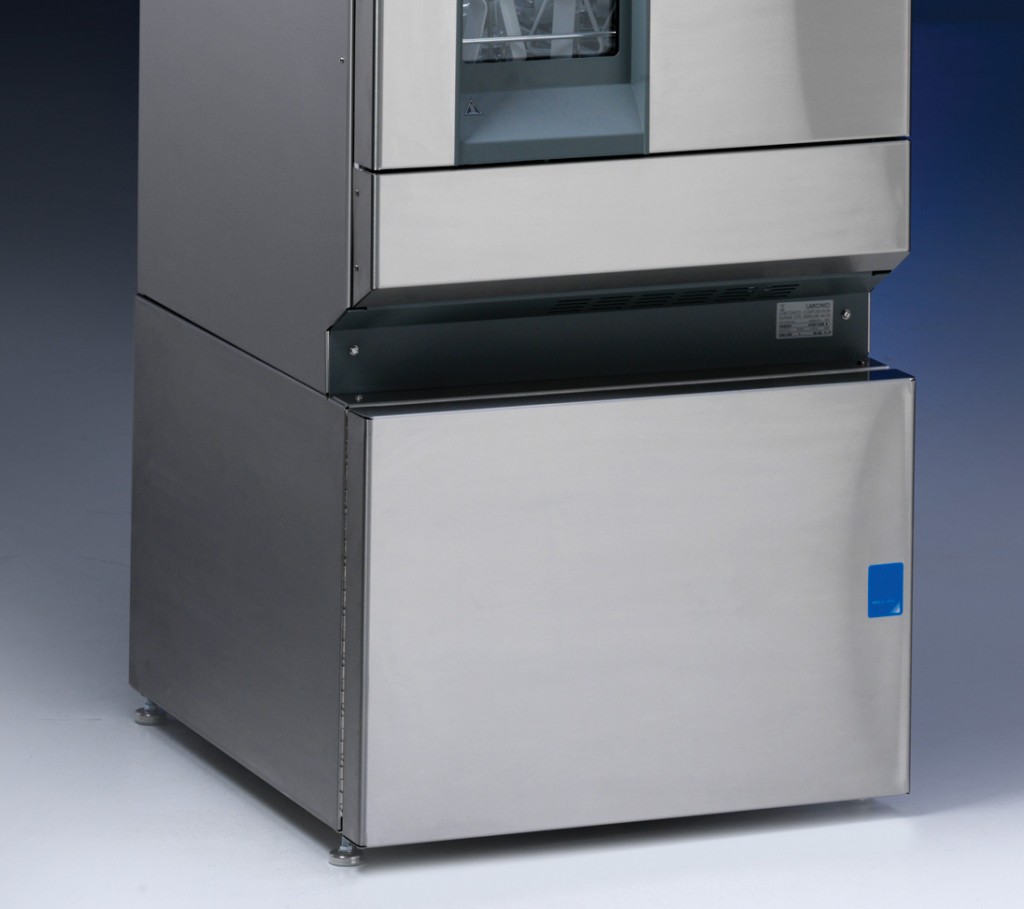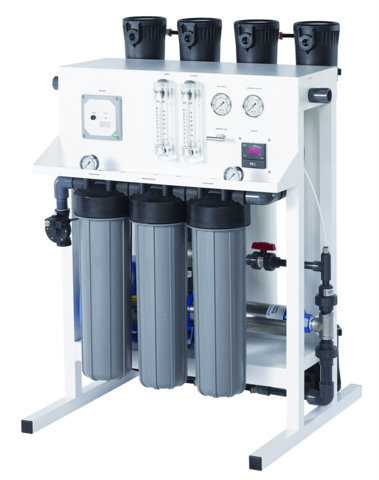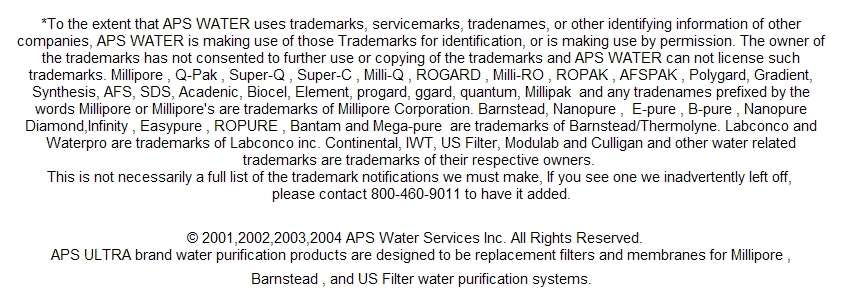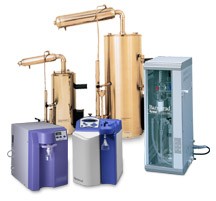 |
Need a New Laboratory Water System?
We have many to choose from. We can save you thousands on
Complete Systems and replacement filters for most brands. |
Why do you need pure water in a laboratory?
Why not tap water?
Tap water has far too many contaminants to be used in laboratories or for scientific purposes. Impurities, elements and compounds in amounts as small as one part per trillion, can influence results in many research experiments. Heavy metals and dissolved organics, commonly found in tap water, are particularly damaging to life science research. Some scientific applications such as High Performance Liquid Chromatography (HPLC) use detector base lines for calibration, and these require ultra pure water completely free of any impurities so that the results are the same in every situation. The water must especially be free of any elements that are being measured.
Because water purity is so important, several professional organizations have established water quality standards.
Some of these influential groups are :
American Chemical Society (ACS)
American Society for Testing and Materials (ASTM)
US Pharmacopeia (USP)
National Committee for Clinical Laboratory Standards (NCCLS).
NCCLS specifies three types of water--I, II, and III--and water intended for Special Purpose use.
What are the contaminants?
Contaminant is any substances you do not want in your water. These are also called impurities. Some common contaminants found in water are particulates, dissolved inorganic (solids and gases), dissolved organics, microorganisms, DNA, RNASE and pyrogens.
How should I purify my water?
You need to consider your application, the quantity of the water you need for your application and the existing condition of your feed water. If you are performing HPLC, Atomic Absorption, Mass Spectrometry or Gas Chromatographic Analyses, you will probably need a system that uses activated carbon, organic absorption, and deionization technologies. If you need bacteria-free water, then microporous filtration or ultrafiltration are better methods for your application. Given this information a water purification system can be matched to your needs. A call to one of our knowledgeable technical representatives may be helpful in deciding which system is the best one for your company.
More Info :
Replacement Filters For Lab Water Systems
New Laboratory Water Systems
Bottled Lab Water
Laboratory Water Distillation
Commercial/Residential Distillation Equipment
Barnstead EasyPure Selection Guide
Certified used and new old stock laboratory water systems.
|

Images are representative of the products. Images may or may not be of the actual product. If it is important e-mail us for an actual image if available.
* Flat Rate UPS shipping when able to ship via UPS and is in the USA excluding Hawaii and Alaska.
Larger Items may not be able to ship via UPS, in that case freight charges will be quoted seperately.
International shipping will be quoted after the order is placed. You will have the opportunity to cancel before we finalize your order.
Terms and conditions
Credit Application
Privacy
Policy
Google Apps
List All Products
|




